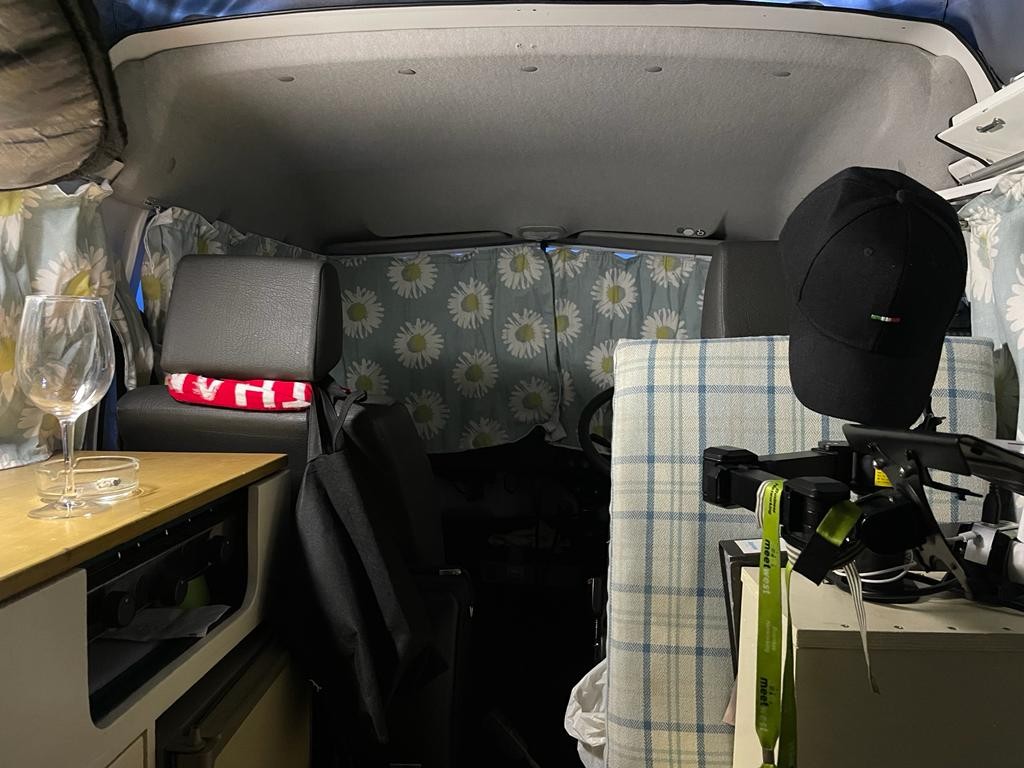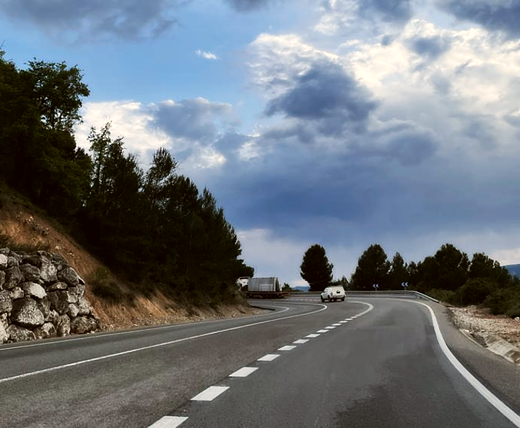In April I set out on a six week road trip to learn about the future of work.
Travelling through Ireland to mainland Europe, I visited cities including Manchester, London, Barcelona, Valencia, Granada, Bilbao, and Lisbon.
With my trusty VW camper and a head full of questions, I met with HRLocker colleagues, consulted with thought leaders in the remote work community, and enlisted the voices of digital nomads throughout Europe.
My goal?
To figure out if remote working actually worked.
At night I slept at campsites, and occasionally on roadsides (legally!). Many colleagues generously offered a bed for the night in their homes. In the daytime, I worked a four day week. My productivity soared. I was inspired and motivated to make remote working work for HRLocker, and promote the benefits to a wider industry audience.

I’ve been an advocate of flexible work for years – whether that’s remote working, working from home, or digital nomading. Essentially, enabling workers to do their jobs in the location that suits them, at a time that suits them, and in a way that suits them.
It’s becoming increasingly clear that we won’t go back to the world as it was. Digital nomad visas and remote working communities have already proved that.
The pandemic spelt disaster for so many of us. But it also brought remote working into the mainstream. It’s proven successful at HRLocker – we’ve grown from 12 people to 36 people despite the pandemic.
Of course, pandemic working isn’t actually remote working. Many knowledge workers found themselves confined to their bedrooms or makeshift kitchen table desks. If you think about it, this was the opposite of flexible – pandemic working was painfully rigid. It’s unsurprising that many workers felt burned out, and worked more hours at home than they did in the office.
Now, if you have a job that can be done with a laptop and strong wifi, you can do it in Barbados. Or Estonia. Or Portugal. Or Mexico. Especially since all of these countries offer digital nomad visas. If you’ve got the income and an employer who supports remote work, the world really is your oyster.

My six-week trip might sound like a vacation to you, but it was far from it. Sure, I was spending time in dynamic cities throughout Europe. But I was asking everyone I met the same questions: what do they think of the four-day working week? Would it work for HRLocker? What do they think of remote working? What do they think of the culture at HRLocker?
They answered my call. And gave me lots to think about.
What I learned from my quest for knowledge
Just because you can be a digital nomad, doesn’t mean you have to be one.
Digital nomading works for some, but others might be more comfortable working between their home, a coffee shop, and a coworking space. Therefore, the flexible working policy business owners put forward to their people should include the different types of remote working, not just a digital nomad fairytale.
Beyond basic digital infrastructure – like internet and mobile coverage – you also need less tangible support to make flexible working work. Individuals who choose to pursue remote work need to be resilient, with the ability to problem solve on their own, and work asynchronously.
Remote work requires a change in mindset. And some will find this trickier than others. Going from five days a week spent in the office, to one day in a coworking space and four days from your Airbnb in Spain is a major shift. Your people will need time to adjust.
It also requires a different outlook on time. One of the most important things I learned during my travels was that how we measure output must change. Over those six weeks, I tried to stick with a four-day week.
But I discovered that the number of days or hours was arbitrary. What matters is: when you work, where you work, and how you work. Those elements dictate your success.

Everyone should have the opportunity to work when they feel most productive. Whether that’s 10am or 10pm. Finding the right location can inspire creativity, aid knowledge sharing (if you’re spending time with a nomad community, for example), and help you get stuff done.
And how you work matters too. The right tools and software are fundamental to effective remote working. The right project management system can help workers perform better, find it easier to complete tasks, and inspire collaboration. A top-of-the-range HR system can reassure bosses that managing a distributed workforce from afar is achievable.
Managing your time is still important, to employers and workers alike. Respecting boundaries and maintaining the right to switch off helps everyone stay present, focused, and connected when it counts. Working at any time doesn’t mean working all the time.
Leaders would do much better assigning tasks and goals each week to measure people on their output instead of hours spent working. The problem with a four-day week is that it still confines people to a restrictive time schedule. Flexible working for one person is not flexible working for another.
Traditionally, leaders have set the schedule and workers have confined themselves to 9-5 hours. Now, workers should be empowered to set their own schedules and find what works for them. As a leader, you’ll see your people thrive. I know I have with the HRLocker team.
Work-life balance failed. Instead, we need work-life blend. A world where work doesn’t infringe on life but complements it instead. Where work and life fit together and don’t rival each other. So you can get the job done, but not at the sacrifice of missing your child’s first football match, or taking an evening class at college.
For so long, people have been forced to fit life in around work. Now, we all have an opportunity to make work fit with our lives.
